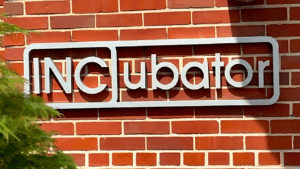Chattanooga, Tenn. (July 14, 2021) — Chattanooga has been recognized for achieving 2021 What Works Cities certification, the national standard of excellence in data-driven city governance. What Works Cities certification evaluates how well cities are managed by measuring the extent to which city leaders incorporate data and evidence in their decision-making.
Chattanooga, which achieved certification at the Gold level, is one of only 16 cities to be newly certified this year and one of only 40 cities to be certified since the program was launched in April 2017. What Works Cities is a national initiative launched by Bloomberg Philanthropies to help cities use data and evidence more effectively to tackle their most pressing challenges.
“As public servants, we owe it to Chattanooga’s residents to ensure that our decisions are not only backed up by good data, but driven by it,” said Chattanooga Mayor Tim Kelly. “Data can tell us what’s working, but more importantly can tell us what’s broken and needs to be fixed to benefit our most vulnerable communities. Data gives us both the freedom and the accountability to live up to our potential.”
What Works Cities certification assesses cities based on their data-driven decision-making practices, such as whether they are using data to set goals and track progress, allocate funding, evaluate the effectiveness of programs, and achieve desired outcomes from contracts with outside vendors. The program also measures whether cities are publicly and transparently communicating about their use of data and evidence.
Chattanooga has demonstrated measurable progress on these foundational data practices. Some notable examples of the city’s use of data include:
Last year, Chattanooga launched a Policing and Racial Equity Dashboard which displays citations, arrests, use of force, citizen complaints by race, and details of closed investigations from the Chattanooga Police Department (CPD) from the last two and a half years. This resource not only creates greater transparency in the city, but also a publicly available resource to hold CPD accountable for making progress. It also allows and encourages the CPD to use data in uncovering policing disparities and making positive changes in how they teach and practice policing as an organization.
And as a part of Chattanooga’s overall data initiative, the Office of Performance Management and Open Data (OPMOD) launched Chattalytics – the “next evolution” of the city’s data and performance management program. This predictive modeling tool uses data science methods to identify projects that help solve real world problems with data. This program will help the city to shift to using data to predict likely future events, allowing the city to be proactive, instead of reactive, and solve problems before they become a crisis. For example, it has helped streamline fire inspections for commercial properties by aggregating data from at least three different databases into a Fire Inspection Model which predicts and assigns a fire risk score to commercial buildings. The data showed that 126 commercial properties had the highest tier fire risk score and allowed the department to prioritize inspections.
The 16 new cities that achieved certification this year include four cities at the Gold level (Austin, TX; Chattanooga, TN; Detroit, MI; and Gilbert, AZ) and 12 cities at the Silver level: Baton Rouge, LA; Bellevue, WA; Fort Collins, CO; Glendale, AZ; Irving, TX; Little Rock, AR; Madison, WI; Minneapolis, MN; Norfolk, VA; Portland, OR; San Antonio, TX; and Syracuse, NY.
Additionally, three cities that had previously been certified advanced to the next level of certification: Cambridge, MA (Gold); Memphis, TN (Gold); and Phoenix, AZ (Gold). Four cities renewed their certification this year: South Bend, IN (Silver); San Jose, CA (Silver); Tempe, AZ (Gold); and Topeka, KS (Silver).
“City leaders are using data to understand and support the needs of residents like never before,” said Michele Jolin, CEO and Co-Founder of Results for America, the lead partner in the What Works Cities initiative. “Throughout the COVID crisis and a historic reckoning with racial injustice, mayors have relied on data to identify and narrow racial gaps, and to make smarter investments that increase opportunity for all their residents. These cities are testing new solutions and measuring what works, rebuilding trust in government by engaging with their residents, and using evidence and data to drive faster progress on their toughest challenges.”
Jennifer Park, founding director of What Works Cities certification, said, “Since certification was first introduced, cities have made tremendous progress in their ability to build the data capacity and skills needed to drive their decision-making with data and evidence. This year, cities used data and evidence to guide their response to COVID, address budget shortfalls, reimagine public safety, advance equity, and much more. Data wasn’t just a valuable tool for city leaders – it was a necessity.”
What Works Cities certification was developed by a team of experts from Results for America in close consultation with the What Works Cities certification Standard Committee. To evaluate cities, these experts conducted a rigorous validation process of cities' certification assessments and participated in site visits to the highest-performing cities to determine the city’s certification level.
The program has inspired a movement of cities that are doubling down on their commitment to building the most well-managed local governments possible and using certification as a roadmap for doing so. More than 200 cities have completed a certification assessment to have their practices benchmarked against the national standard. The assessment is the first step to receiving exclusive support from What Works Cities to continue building a more effective local government. To learn more about the program and how to participate, visit www.whatworkscities.bloomberg.org/certification.








